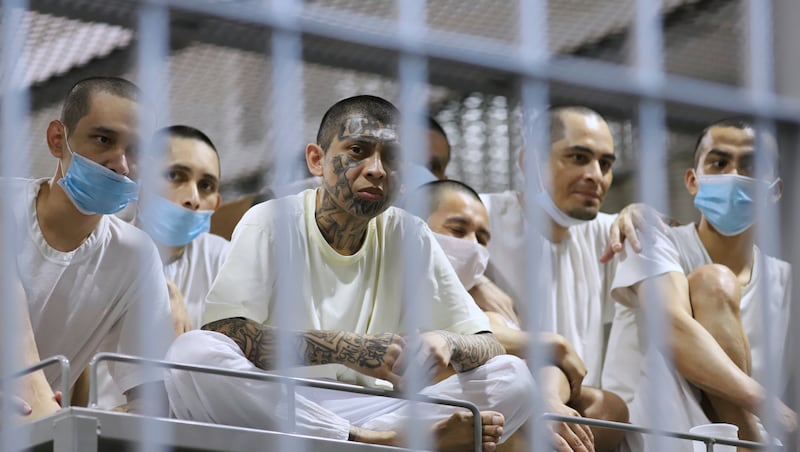The Supreme Court on Monday overturned a high-profile ruling that was interfering with the Trump administration’s deportation push.
In a 5-4 per curiam ruling, justices in the majority said that alleged members of a Venezuelan gang who faced deportation due to the administration’s application of the Alien Enemies Act had filed their lawsuit in the wrong court.
For that reason, the Supreme Court undid U.S. District Judge James E. Boasberg’s decision in favor of the men. Boasberg, who has faced calls for impeachment due to his recent decisions in deportation cases, serves the U.S. District Court in D.C.
The Monday ruling said the men facing deportation can refile their case in Texas, where they are being held, and emphasized that immigrants facing deportation are entitled to due process.
“For all the rhetoric of the dissents, today’s order and per curiam confirm that the detainees subject to removal orders under the (Alien Enemies Act) are entitled to notice and an opportunity to challenge their removal. The only question is which court will resolve that challenge,” the majority opinion said.
The court did not rule on the underlying questions in the case, including whether or not the Trump administration is applying the Alien Enemies Act correctly.
Prisoners look out from their cell as the Costa Rica Justice and Peace minister tours the Terrorist Confinement Center in Tecoluca, El Salvador, Friday, April 4, 2025. | Salvador Melendez
As the majority opinion noted, the Supreme Court’s nine justices did not speak with one voice in the case.
Justices Sonia Sotomayor and Ketanji Brown Jackson wrote dissenting opinions. Sotomayor’s opinion was joined by Jackson and Justice Elena Kagan in full and by Justice Amy Coney Barrett in part.
The dissents argued that the majority opinion was confusing and dangerous — and that it was wrong to put the emphasis on the legal venue instead of the Trump administration’s violation of the men’s due process rights.
“To the extent the Government removes even one individual without affording him notice and a meaningful opportunity to file and pursue habeas relief, it does so in direct contravention of an edict by the United States Supreme Court,” Sotomayor wrote in one part of her dissent that Barrett joined.
Justice Brett Kavanaugh, who, like Barrett, was appointed by President Donald Trump, wrote a concurring opinion in which he emphasized that the court’s decision fits with established legal precedent.
“I agree with the Court’s per curiam opinion. Importantly, as the Court stresses, the Court’s disagreement with the dissenters is not over whether the detainees receive judicial review of their transfers — all nine Members of the Court agree that judicial review is available. The only question is where that judicial review should occur,” he said.
Monday’s ruling in the case brought by Venezuelan immigrants came just hours after Chief Justice John Roberts put a lower court order in another deportation case on hold temporarily.
Read the full article here
